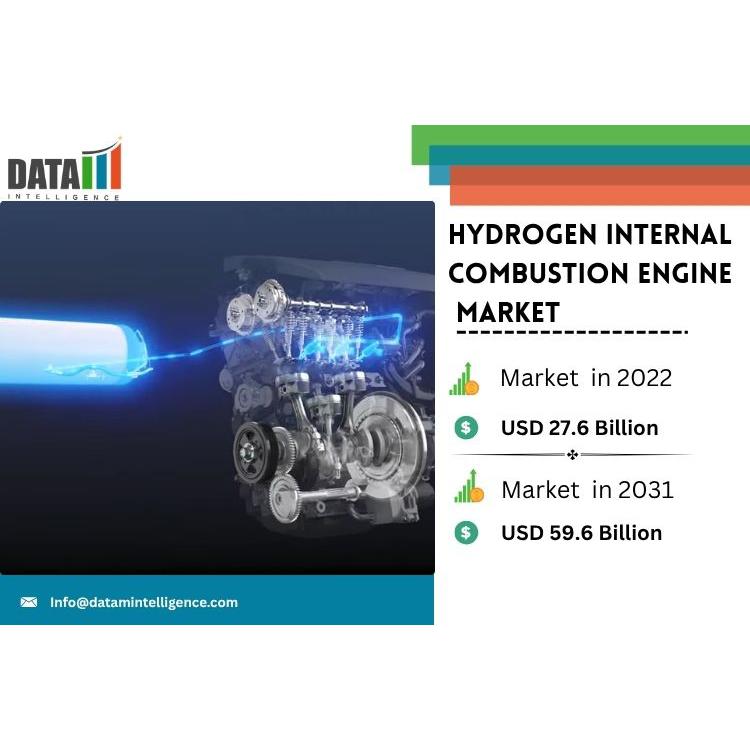Driving Towards a Hydrogen-Powered Future: Hydrogen Internal Combustion Engine Market Insights
Key Ideas
- The global market for Hydrogen Internal Combustion Engines is projected to grow significantly, reaching around USD 59.6 Billion by 2031, with a compound annual growth rate of 10.1% from 2024 to 2031.
- Major OEMs like Toyota and Isuzu are driving hydrogen innovation with next-gen fuel cell and combustion technologies, aiming to accelerate the adoption of hydrogen-powered mobility and decarbonize commercial fleets globally.
- Hydrogen combustion engines offer a low-tech transition advantage by requiring minimal adjustments from traditional internal combustion engines, reducing the need for critical battery materials, and providing a viable, scalable alternative to electric vehicle batteries.
- Key market players in the hydrogen ICE development include Toyota Industries Corporation, BMW Group, Hyundai Motor Company, Mazda Motor Corporation, and other global companies, leading the way in advancing hydrogen technology across various vehicle segments and applications.
The Hydrogen Internal Combustion Engine Market is experiencing rapid growth as the demand for clean energy solutions intensifies globally. The market, valued at USD 27.6 billion in 2022, is forecasted to expand to around USD 59.6 billion by 2031, driven by a compound annual growth rate of 10.1% over the period from 2024 to 2031. The United States has seen an increase in the adoption of hydrogen internal combustion engines, propelled by decarbonization goals and investments in clean mobility technologies. Major developments by Toyota and Isuzu, like the collaboration to mass-produce a light-duty hydrogen fuel cell truck and the unveiling of a hydrogen combustion SUV prototype, signal a shift towards hydrogen-powered transportation. Hydrogen combustion engines offer advantages such as reducing the reliance on lithium and nickel, showcasing high performance in motorsports, and requiring minimal adjustments from traditional engines. The market's geographical distribution points to Asia-Pacific, Europe, and North America as key regions driving hydrogen ICE adoption, with significant investments in hydrogen mobility strategies. Global companies like Toyota Industries Corporation, BMW Group, and Hyundai Motor Company are leading the charge in advancing hydrogen ICE technology for various vehicle segments and applications. Recent developments in the United States and Japan, including successful tests of hydrogen internal combustion engines for long-haul trucks and partnerships to integrate hydrogen ICE technology into commercial vehicles, highlight the industry's momentum towards a hydrogen-powered future.
Topics
Fuel Cells
Innovation
Sustainability
Green Technology
Global Trends
Industry Analysis
Future Energy
Market Overview
Mobility Solutions
Latest News
